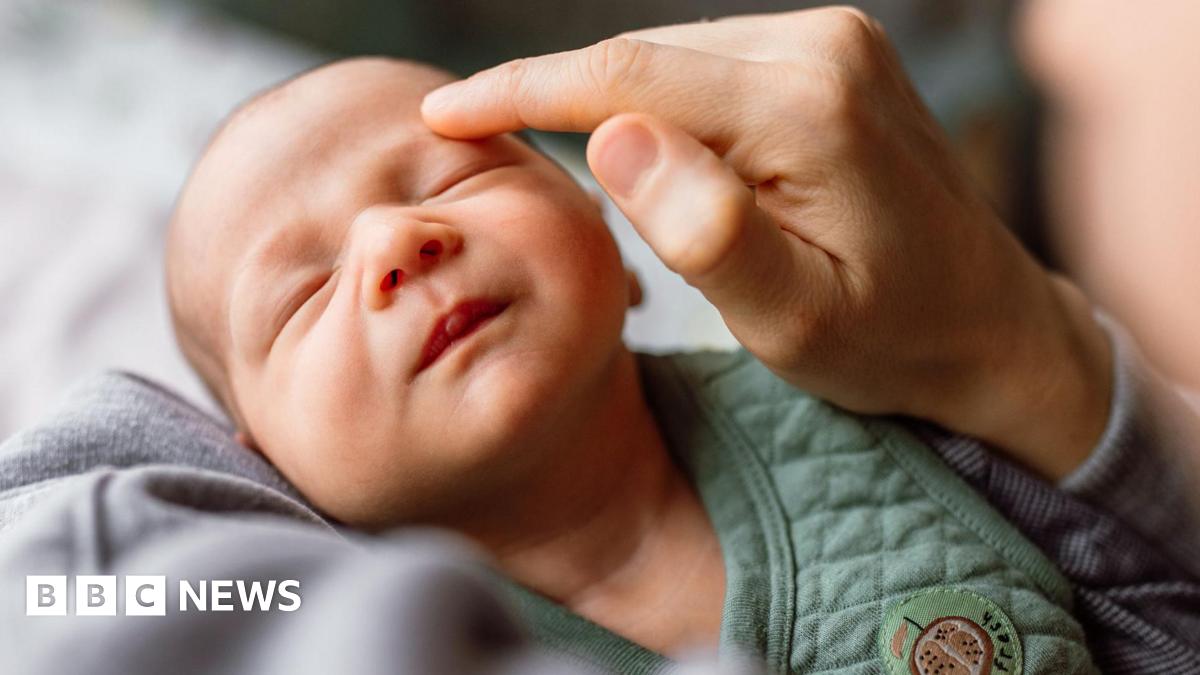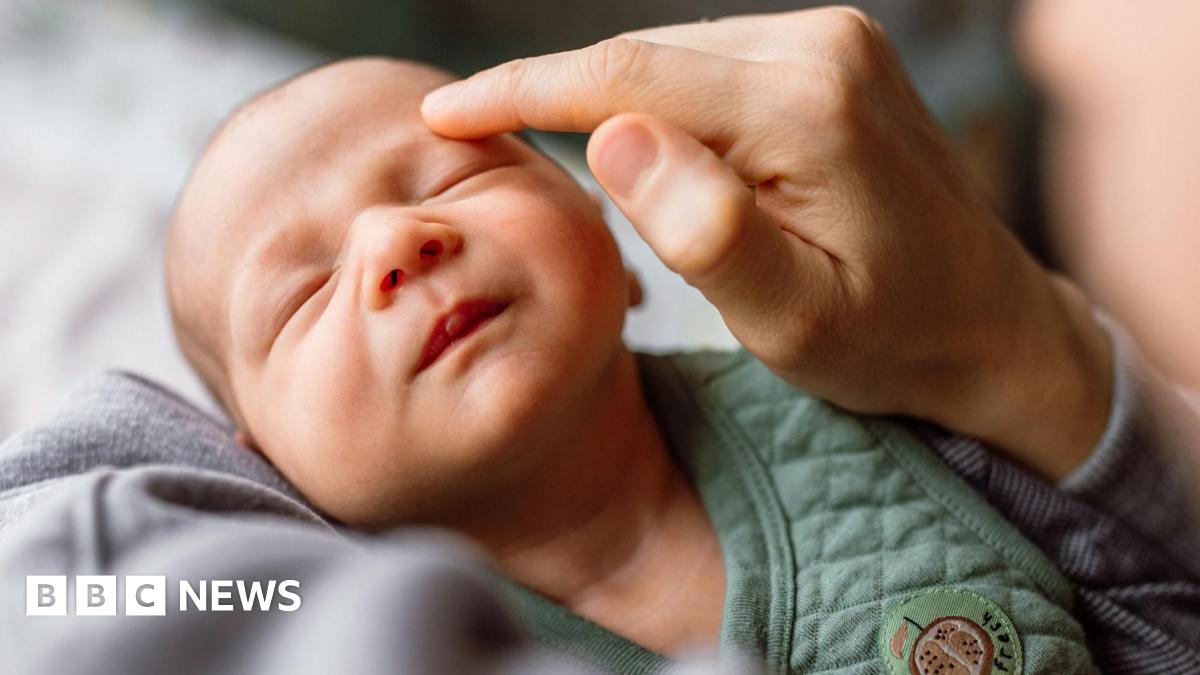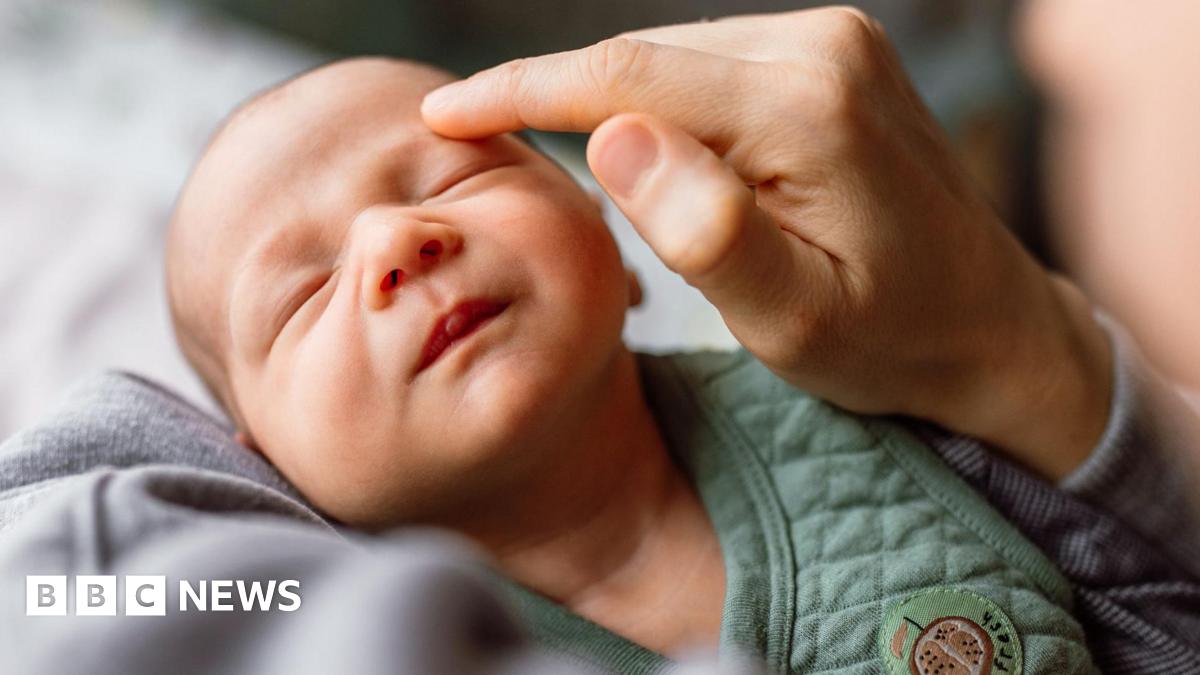Microbiome And Health: How Our Initial Bacteria Impact Hospitalization

Welcome to your ultimate source for breaking news, trending updates, and in-depth stories from around the world. Whether it's politics, technology, entertainment, sports, or lifestyle, we bring you real-time updates that keep you informed and ahead of the curve.
Our team works tirelessly to ensure you never miss a moment. From the latest developments in global events to the most talked-about topics on social media, our news platform is designed to deliver accurate and timely information, all in one place.
Stay in the know and join thousands of readers who trust us for reliable, up-to-date content. Explore our expertly curated articles and dive deeper into the stories that matter to you. Visit Best Website now and be part of the conversation. Don't miss out on the headlines that shape our world!
Table of Contents
Microbiome and Health: How Our Initial Bacteria Impact Hospitalization
The human microbiome, a complex ecosystem of trillions of microorganisms residing within our bodies, is increasingly recognized as a crucial factor influencing our overall health. Recent research highlights a groundbreaking connection: the composition of our initial bacteria, acquired at birth and in early childhood, significantly impacts the likelihood of future hospitalizations. This revelation opens up exciting new avenues for preventative medicine and personalized healthcare.
The Early Bird Gets the… Healthier Gut?
The way we acquire our first bacteria – via vaginal delivery, cesarean section, or even breastfeeding – profoundly shapes the microbial landscape of our gut. This initial colonization establishes the foundation for our immune system development and influences our susceptibility to various diseases throughout life. Studies suggest that a diverse and balanced microbiome in infancy is associated with better long-term health outcomes.
- Vaginal Delivery vs. Cesarean Section: Babies born vaginally are exposed to a diverse array of maternal vaginal and gut bacteria, establishing a microbiome more closely resembling the environment they'll later encounter. In contrast, babies born via Cesarean section often have a less diverse microbiome, potentially increasing their risk of certain health issues.
- Breastfeeding's Protective Role: Breast milk provides a unique mix of nutrients and beneficial bacteria, further shaping the infant's microbiome and bolstering their immune system. This can contribute to a more resilient microbiome capable of better withstanding infections and reducing the risk of hospitalizations.
The Link Between Early Microbiome and Hospitalization:
Several studies have linked an imbalanced or less diverse early microbiome to a higher risk of various conditions requiring hospitalization later in life. These include:
- Infections: A weakened immune system, partially influenced by a poorly established microbiome, can lead to increased susceptibility to infections, necessitating hospital care.
- Autoimmune Diseases: Emerging research suggests a connection between an imbalanced microbiome in early life and the development of autoimmune diseases, such as type 1 diabetes and inflammatory bowel disease (IBD), which frequently require hospitalization.
- Respiratory Illnesses: The microbiome in the gut and lungs interacts closely. A compromised gut microbiome may weaken respiratory defenses, increasing vulnerability to respiratory illnesses leading to hospitalization.
- Allergies: Early-life microbiome dysbiosis (imbalance) is increasingly implicated in the development of allergies, which can trigger severe reactions requiring hospitalization.
Future Implications and Personalized Approaches:
Understanding the profound impact of our initial bacterial colonization on future health has significant implications for healthcare:
- Personalized Medicine: Analyzing the early microbiome could provide valuable insights for personalized preventative strategies. Early identification of an at-risk microbiome may allow for targeted interventions to improve its diversity and balance.
- Probiotic Interventions: The use of probiotics and prebiotics in infancy could help shape a healthier microbiome, potentially reducing the risk of future hospitalizations. Further research is crucial to determine optimal strategies and dosages.
- Improved Cesarean Section Practices: Exploring ways to mitigate the effects of Cesarean section on the infant microbiome, such as skin-to-skin contact with the mother and the application of maternal vaginal bacteria, is an area of active investigation.
Conclusion:
The emerging field of microbiome research is transforming our understanding of health and disease. The intricate relationship between our initial bacterial exposure and the likelihood of future hospitalizations underscores the importance of focusing on early-life microbiome development. This knowledge empowers us to develop more effective preventative measures and personalized healthcare strategies, leading to healthier lives and potentially reducing the burden on healthcare systems. Further research will undoubtedly refine our understanding and lead to even more impactful interventions in the years to come. Stay tuned for future updates in this rapidly evolving field!

Thank you for visiting our website, your trusted source for the latest updates and in-depth coverage on Microbiome And Health: How Our Initial Bacteria Impact Hospitalization. We're committed to keeping you informed with timely and accurate information to meet your curiosity and needs.
If you have any questions, suggestions, or feedback, we'd love to hear from you. Your insights are valuable to us and help us improve to serve you better. Feel free to reach out through our contact page.
Don't forget to bookmark our website and check back regularly for the latest headlines and trending topics. See you next time, and thank you for being part of our growing community!
Featured Posts
-
 Clay Courts In Tennis Technique And Strategy At Roland Garros
Jun 06, 2025
Clay Courts In Tennis Technique And Strategy At Roland Garros
Jun 06, 2025 -
 2026 Villanova Wildcats Become Patriot League Football Associate Member
Jun 06, 2025
2026 Villanova Wildcats Become Patriot League Football Associate Member
Jun 06, 2025 -
 Preventing Hospital Stays Understanding The Influence Of Initial Microbiome Composition
Jun 06, 2025
Preventing Hospital Stays Understanding The Influence Of Initial Microbiome Composition
Jun 06, 2025 -
 Sneakerheads Line Up New 110s At Jd Sports Spark Overnight Queues
Jun 06, 2025
Sneakerheads Line Up New 110s At Jd Sports Spark Overnight Queues
Jun 06, 2025 -
 The Realization Maintaining Two Separate Homes
Jun 06, 2025
The Realization Maintaining Two Separate Homes
Jun 06, 2025
Latest Posts
-
 Gut Microbiome How Initial Bacteria Influence Future Health
Jun 07, 2025
Gut Microbiome How Initial Bacteria Influence Future Health
Jun 07, 2025 -
 Sneaker Frenzy Jd Sports Sees Huge Demand For New 110s
Jun 07, 2025
Sneaker Frenzy Jd Sports Sees Huge Demand For New 110s
Jun 07, 2025 -
 Nhl Playoffs Dallas Stars Dismiss Coach De Boer Post West Finals
Jun 07, 2025
Nhl Playoffs Dallas Stars Dismiss Coach De Boer Post West Finals
Jun 07, 2025 -
 Cognitive Decline Allegations Fuel Trumps Investigation Into Bidens Actions And Autopen Use
Jun 07, 2025
Cognitive Decline Allegations Fuel Trumps Investigation Into Bidens Actions And Autopen Use
Jun 07, 2025 -
 Wisconsin Murder Trial Man Convicted After Dismembering Teen On First Date
Jun 07, 2025
Wisconsin Murder Trial Man Convicted After Dismembering Teen On First Date
Jun 07, 2025
